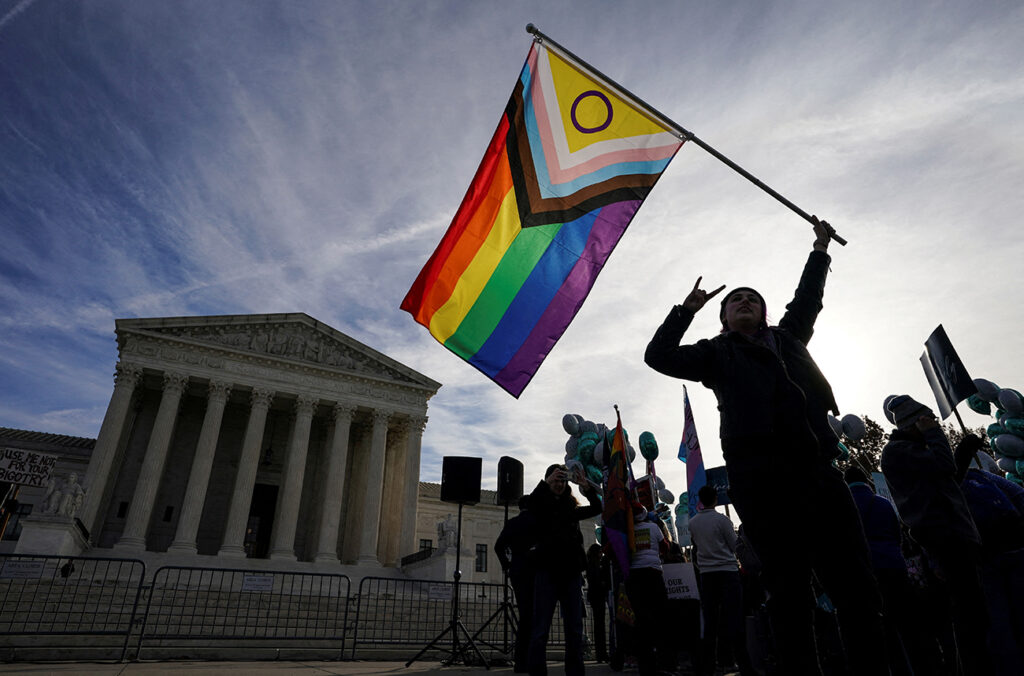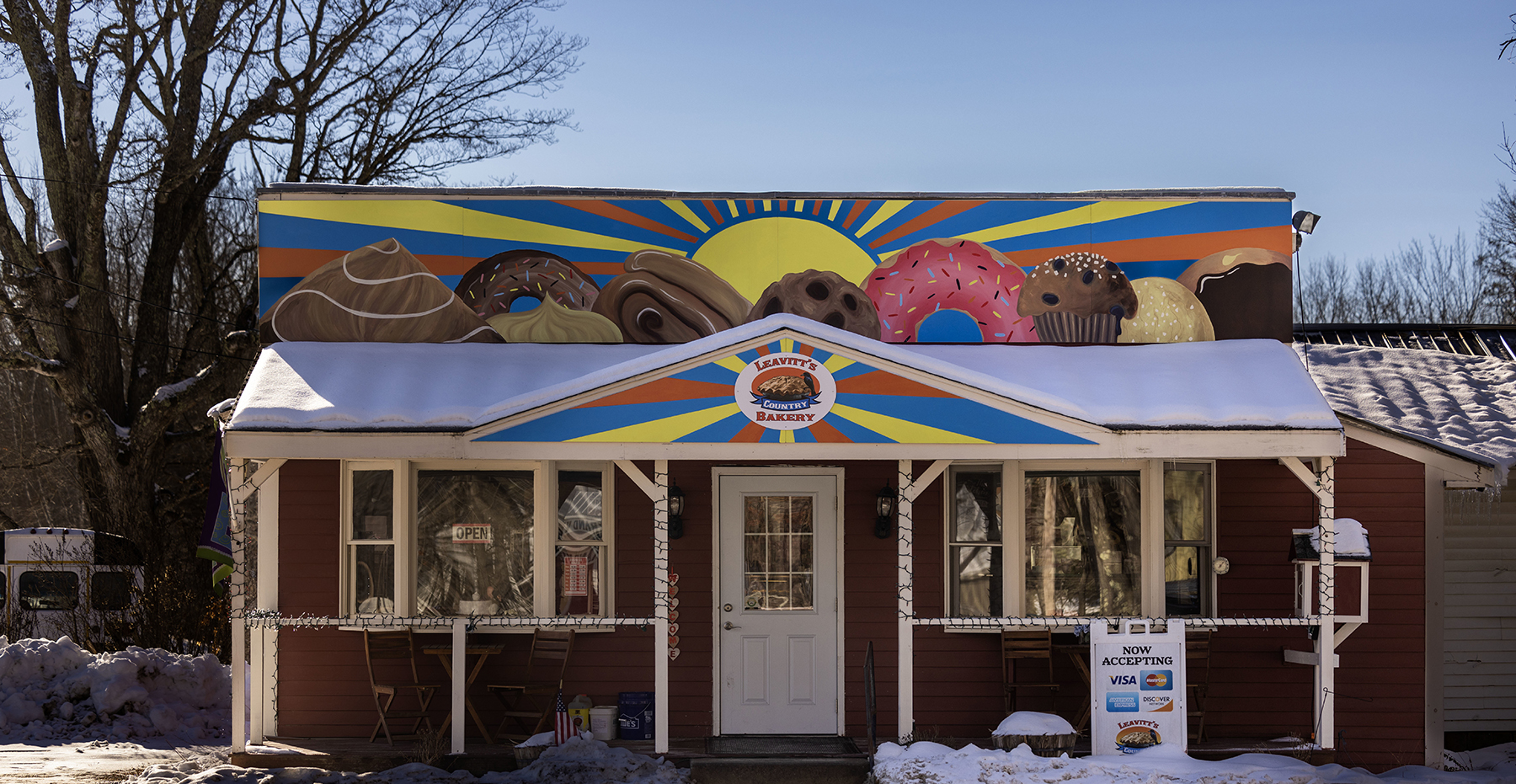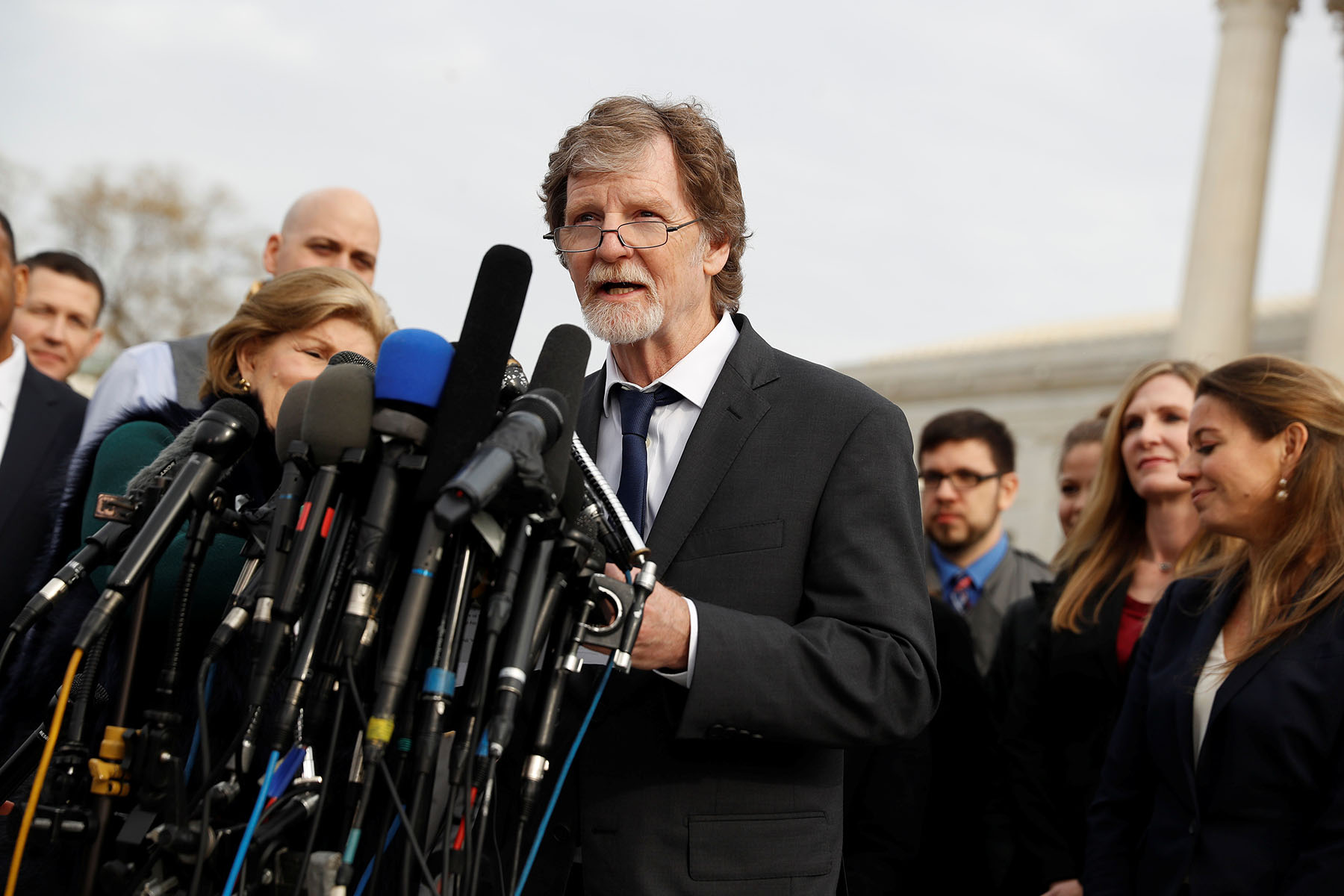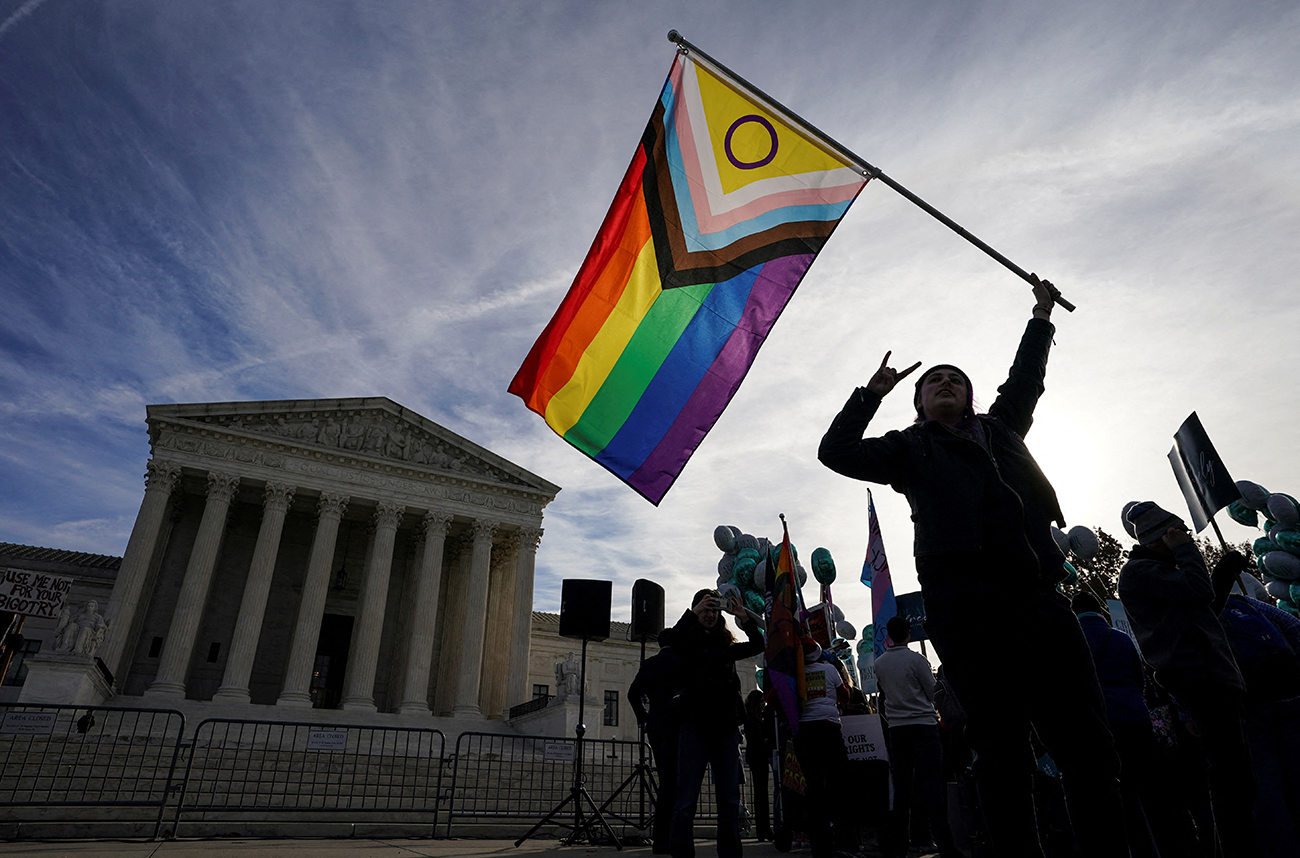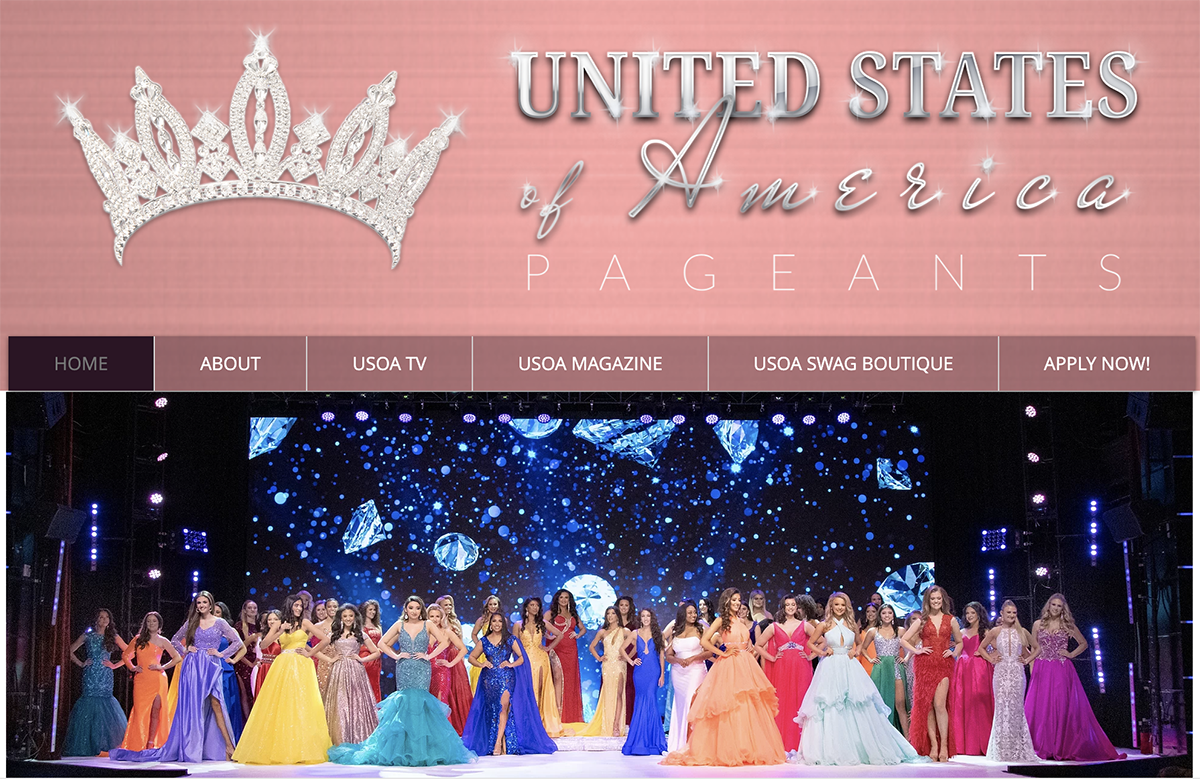The Supreme Court heard oral arguments Dec. 5 in 303 Creative LLC v. Elenis, a case brought by a Colorado-based website designer who argues that the state’s anti-discrimination law violates her freedom of speech and religion.
The website designer, Lorie Smith, owns the design studio 303 Creative, where she designs various websites, including those celebrating marriage. Smith is an evangelical Christian, and states on her website that because of her religion, she will operate her business observing her beliefs in God.
“Because of my faith, however, I am selective about the messages that I create or promote — while I will serve anyone I am always careful to avoid communicating ideas or messages, or promoting events, products, services, or organizations, that are inconsistent with my religious beliefs,” the statement says.
The Supreme Court granted Smith’s petition for this past February to answer only the free speech issue: “Whether applying a public-accommodation law to compel an artist to speak or stay silent violates the free speech clause of the First Amendment,” according to the filing.
Smith is represented by Kristen Waggoner, CEO, president and general counsel of the Alliance Defending Freedom, (ADF), a conservative legal advocacy group which describes its mandate as “committed to protecting religious freedom, free speech, the sanctity of life, parental rights, and God’s design for marriage and family.”
Smith wanted to include a statement on her website that says she is doing God’s work and must promote and “celebrate His design for marriage as a life-long union between one man and one woman,” according to her initial complaint filed in 2016. But this statement if published would discriminate against same-sex marriages and therefore violate Colorado’s anti-discrimination law. Smith argued that not being allowed to publish this statement explaining her beliefs was a violation of her First Amendment right to free speech and freedom of religion.
During the oral arguments, several justices discussed the merits of the case by offering hypotheticals for discussion — some of them implausible and some producing laughter.
“An unmarried Jewish person asks a Jewish photographer to take a photograph for his Jdate dating profile. It’s a dating service, I gather, for Jewish people,” Justice Samuel Alito said to Colorado’s Solicitor General Eric Olson. Justice Elena Kagan replied, “It is,” which was followed by laughter.
“All right. Maybe Justice Kagan will also be familiar with the next website I’m going to mention. So, next, a Jewish person asks a Jewish photographer to take a photograph for his ashleymadison.com dating profile,” Justice Alito said, generating more laughter in the courtroom, as AshleyMadison.com is an infidelity dating website. “Does he have to do it?”
Olson responded that it depends, but “what Colorado looks to is what services the photographer makes available to the public. And if the photographer makes that service available to others, taking pictures, you know, for use on websites, then probably yes.”
In another hypothetical, Justice Alito asked “if there’s a Black Santa at the other end of the mall and he doesn’t want to have his picture taken with a child who’s dressed up in a Ku Klux Klan outfit, that Black Santa has to do that?”
“No, because Ku Klux Klan outfits are not protected characteristics under public accommodation laws,” Olson replied.
Justice Kentanji Brown Jackson asked for clarification from Olson that no matter what the court decides, “it could have implications for other kinds of categorizations and strongly religious held First Amendment invocations of rights?” Olson said “Absolutely.”
If the court ruled in Smith’s favor, Justice Sonia Sotomayor said it would be the first time in the Supreme Court’s history that a place of public accommodation would be allowed to refuse service “based on race, sex, religion or sexual orientation.”
The high court, according to The Associated Press, “sounded sympathetic” to Smith’s arguments, and is expected to issue a ruling in June.
Smith originally filed her complaint in the U.S. District Court for the District of Colorado in 2016 against the director of the Colorado Civil Rights Division, members of the Colorado Civil Rights Commission and the Colorado Attorney General.
The Colorado Anti-Discrimination Act, (CADA), bars instances of sex and sexual orientation discrimination, among other things, in places of public accommodation that offer services, which includes Smith’s design company. CADA also bars the publishing of a statement that may discriminate against an individual from receiving the services of a public business “because of disability, race, creed, color, sex, sexual orientation, marital status, national origin, or ancestry.”
The statement Smith wished to publish on her website says that because of her religious beliefs she will not create websites that run counter to her faith or religious convictions, according to the complaint.
“I will not be able to create websites for same-sex marriages or any other marriage that is not between one man and one woman,” the proposed statement read. “Doing that would compromise my Christian witness and tell a story about marriage that contradicts God’s true story of marriage – the very story He is calling me to promote.”
The federal district court ruled in favor of Colorado in September 2019, dismissing Smith’s claims. Smith then appealed to the U.S. Court of Appeals for the Tenth Circuit in July 2021, which also ruled against her in a 2-1 decision.
The Tenth Circuit stated that “a faith that enriches society in one way might also damage society in other (sic), particularly when that faith would exclude others from unique goods or services. In short, Appellants’ Free Speech and Free Exercise rights are, of course, compelling. But so too is Colorado’s interest in protecting its citizens from the harms of discrimination. And Colorado cannot defend that interest while also excepting Appellants from CADA.”
303 Creative LLC v. Elenis follows another similar Supreme Court case brought by ADF attorneys, including Waggoner, in 2018: Masterpiece Cakeshop v. Colorado Civil Rights Commission.
Jack C. Phillips, the owner of Masterpiece Cakeshop in Lakeland, Colorado, refused to design and create a wedding cake for a celebration of a same-sex marriage.
Phillips claimed that the creation of the cake is artistic expression protected by the First Amendment’s free speech and free exercise of religion clause. But the same-sex couple and Colorado argued that Phillips’ work on the cake is not expressive conduct according to the law and that the state has a significant interest in preventing discrimination based on sexual orientation. The Supreme Court issued a 7-2 decision, but did not decide on the central issue of the case. Rather, the court ruled that the commission acted improperly, enabling the court to sidestep the central issue.
“The neutral and respectful consideration to which Phillips was entitled was compromised here,” Justice Kennedy wrote in the decision. “The Civil Rights Commission’s treatment of his case has some elements of a clear and impermissible hostility toward the sincere religious beliefs that motivated his objection.”
SUPREME COURT ORAL ARGUMENT TRANSCRIPT, DEC. 5, 2022
Supreme Court Agrees to Review 303 Creative LLC v. Elenis
U.S. COURT OF APPEALS FOR THE TENTH CIRCUIT 2021 DECISION
U.S. DISTRICT COURT FOR THE DISTRICT OF COLORADO 2016 DECISION
Tags
